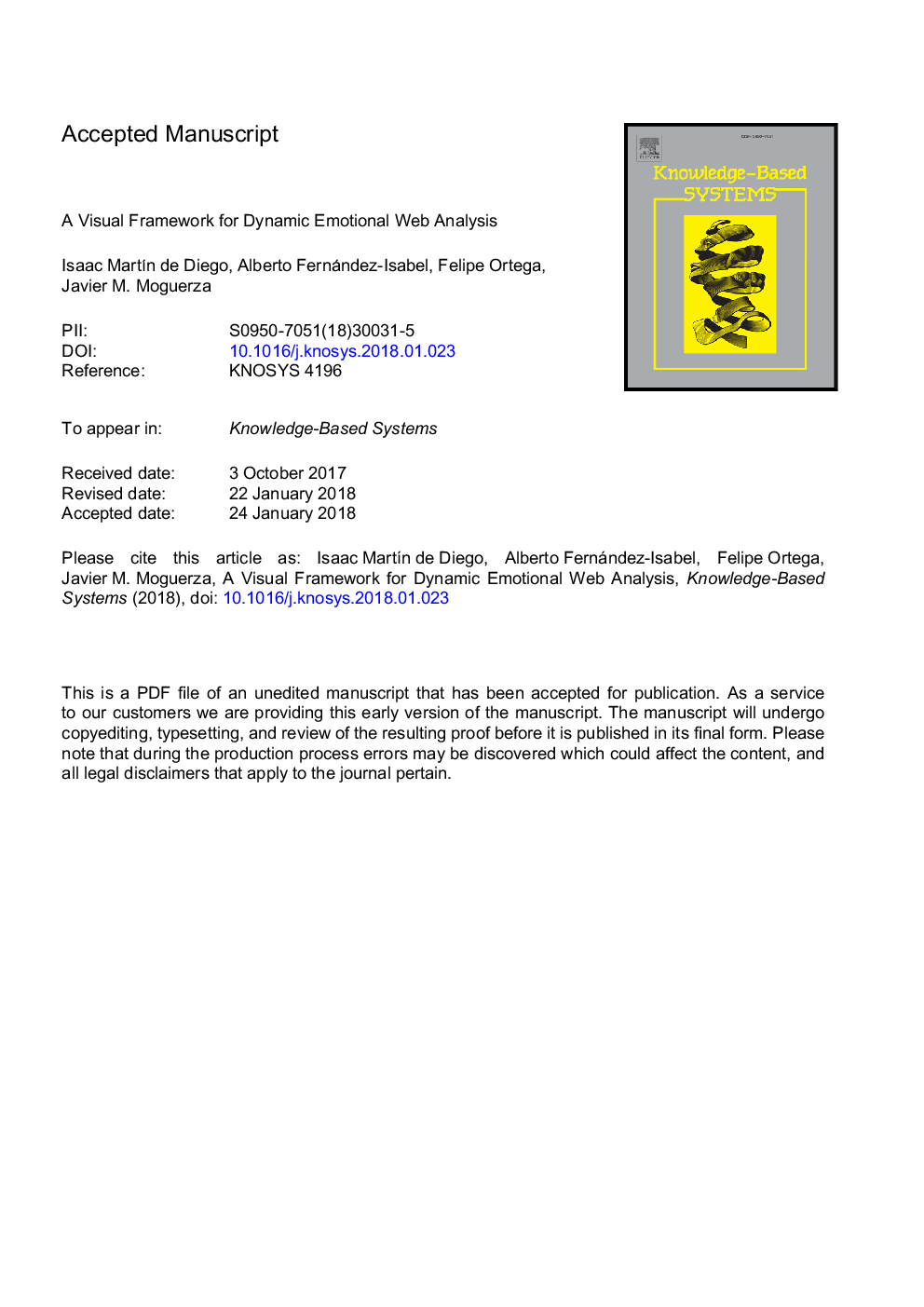| Article ID | Journal | Published Year | Pages | File Type |
|---|---|---|---|---|
| 6861690 | Knowledge-Based Systems | 2018 | 25 Pages |
Abstract
Sentiment analysis is focused on detecting opinions and emotions directly linked to relevant topics in textual data. Its application for the automated analysis of large datasets with text from websites has become a major challenge today. Common approaches proposed for this task are based on predefined dictionaries of words, each one tagged with a positive or negative polarity beforehand. A known limitation of these systems is that they may return inaccurate estimations of the polarity of opinions, according to the actual number of words considered in the analysis. In addition, these systems do not usually include an intuitive graphical interface to facilitate the understanding of similarities between terms or gauge how their sentiment polarization evolves over time. In this paper we present EmoWeb, a prototype of a new tool for dynamic sentiment analysis of textual content from websites. This prototype includes a visual and dynamic framework to analyze texts, based on a well-established lexicon. An unsupervised learning algorithm can append new words and calculate or update their sentiment polarization and strength over time. Moreover, it can increase the number of words considered for sentiment analysis to improve the accuracy of results. A novel dynamic visualization module makes it easier for end users to interpret sentiments associated to terms and their changes. The prototype has been empirically evaluated in two experiments with real data gathered from news websites. Results are promising and illustrate the applicability of this approach for sentiment analysis of textual web content.
Related Topics
Physical Sciences and Engineering
Computer Science
Artificial Intelligence
Authors
Isaac MartÃn de Diego, Alberto Fernández-Isabel, Felipe Ortega, Javier M. Moguerza,
